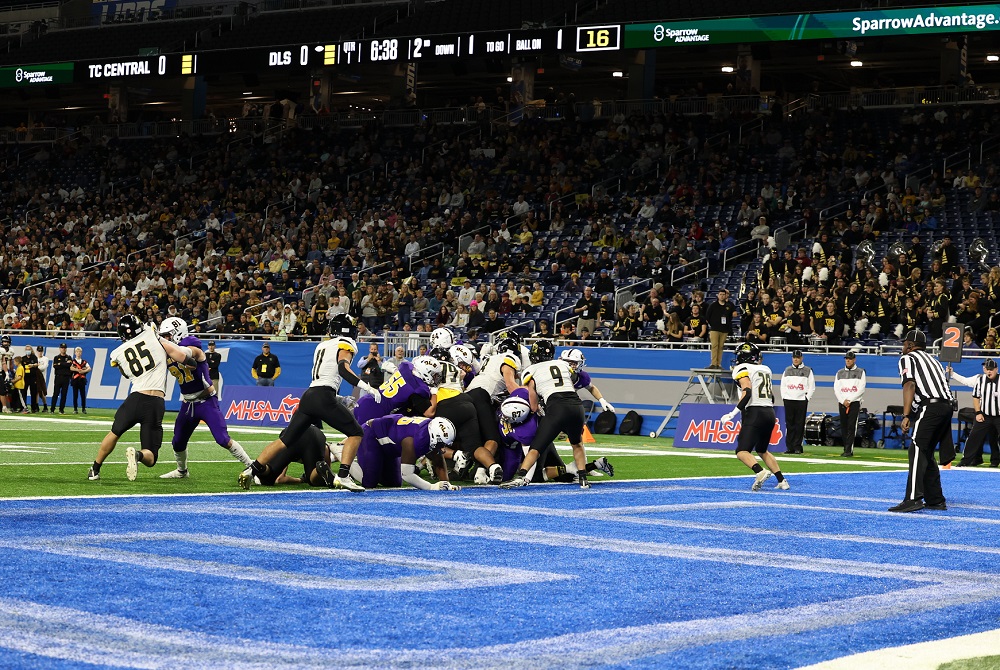
Be the Referee: Overtime Differences
November 1, 2018
This week, MHSAA officials coordinator Sam Davis explains how high school football overtime differs from extra play at the college level.
Be The Referee is a series of short messages designed to help educate people on the rules of different sports, to help them better understand the art of officiating, and to recruit officials.
Below is this week's segment – Overtime Differences - Listen
There are a few differences in high school football overtime compared to college games.
During overtime in high school football, each team begins its offensive series 1st-and-Goal from the 10- yard line as opposed to 1st–and-10 at the 25. The only way a team can pick up a first down is on a roughing foul – roughing the passer, the holder, the center or the kicker.
A lost fumble or intercepted pass ends a team’s offensive series, (and on) a try for an extra point following a touchdown, the defense cannot return the ball for a score. And unlike college football, there is never a requirement that a team go for a 2-point conversion. What is common between the two levels is that each team gets one timeout per overtime, and unused timeouts don’t carry over from regulation or from overtimes.
Past editions
October 25: Trickery & Communication - Listen
October 18: Punts & Missed Field Goals - Listen
October 11: What Officials Don't Do - Listen
October 4: Always 1st-and-Goal - Listen
September 27: Unique Kickoff Option - Listen
September 20: Uncatchable Pass - Listen
September 13: Soccer Rules Change - Listen
September 6: You Make the Call: Face Guarding - Listen
August 30: 40-Second Play Clock - Listen
August 23: Football Rules Changes - Listen

Be The Referee: Play Clock
By
Sam Davis
MHSAA Director of Officials
August 30, 2022
Be The Referee is a series of short messages designed to help educate people on the rules of different sports, to help them better understand the art of officiating, and to recruit officials.
Below is this week's segment – Play Clock - Listen
There’s a new rule in football this year that provides the offense more time to draw up a play and prepare matchups when the defense commits a foul.
In the past, if the defense committed a foul, the play clock would be set to 25 seconds, potentially changing the approach by the offense entirely.
Under the change, when the defense or receiving team commits a foul, the play clock will start at 40 seconds, giving the offense an extra 15 seconds to prepare their scheme for the next play.
For all other administrative stoppages, including fouls against the offense or kicking team, the play clock will be set to 25 seconds when play resumes.
Previous Editions:
Aug. 23: Intentional Grounding Change - Listen

